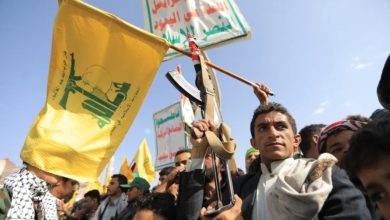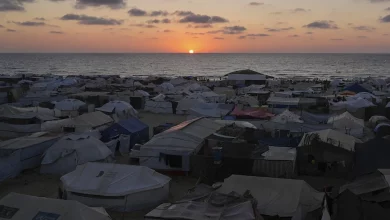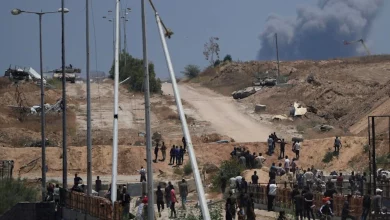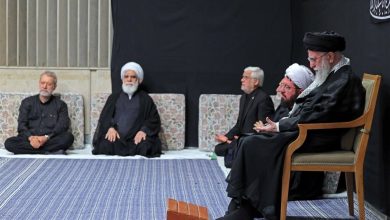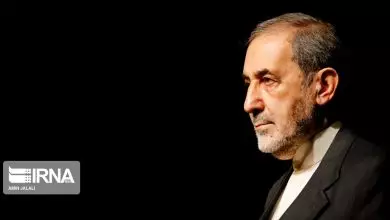IRCS Head Blames US Sanctions for Death of Many Iranian People after Coronavirus Outbreak
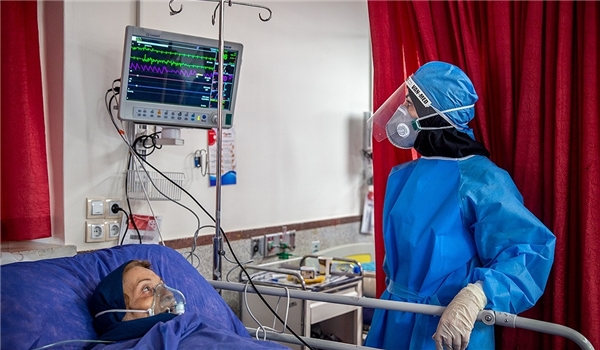
Head of the Iranian Red Crescent Society (IRCS) Karim Hemmati in a meeting with Swiss Ambassador to Tehran Markus Leitner said that the US cruel sanctions against Iran have caused the death of many people in his country after the coronavirus outbreak.
Iran lost many people as a result of coronavirus spread due to the US unilateral sanctions, Hemmati said during the meeting in Tehran on Wednesday.
Despite all problems, Iran has managed to overcome the epidemic, he said, noting, “We are ready to share the experiences in the field with Swiss universities and scientific and research centers.”
Leitner, for his part, noted that both Swiss Embassy and government have close cooperation with IRCS, as it is considered a main partner which plays an effective role in fighting the deadly virus.
Swiss companies operating in Iran are eager to cooperate with IRCS, he said, noting that Iran can place its orders with them in the field of medical supplies.
Iranian Health Ministry Spokesman Kianoush Jahanpour said on Thursday that 1,606 new cases of coronavirus infection were identified in the country in the past 24 hours, voicing pleasure that nearly 67% of patients have recovered.
“1,606 more patients infected with COVID-19 virus have been identified in the country since yesterday based on confirmed diagnosis criteria,” Jahanpour said on Thursday.
He said that the total number of coronavirus patients in Iran has increased to 77,995, adding that 4,869 people have lost their lives due to infection to the virus, including 92 in the past 24 hours.
Jahanpour, meantime, said that 52,229 (67% of) infected people have been treated and dismissed from hospital, expressing concern that 3,594 patients infected with COVID-19 virus are in critical conditions.
He also noted that 310,340 coronavirus diagnosis tests have been carried out in the country so far.
Iranian Health Minister Saeed Namaki stressed on April 7 effective measures to control coronavirus epidemic, expressing the hope that the disease would be controlled in Iran by late May.
“At present, the country is in the phase of disease management and we should not imagine that we have reached the harness and control phase. Today is the time for full-fledged combat against the virus. God willing, we will control coronavirus by late May. The virus should be controlled in the minimum possible time,” Namaki said, addressing the Iranian legislators in an open session of the parliament in Tehran.
He noted that at least 30% to 50% of hospital beds are still vacant across Iran and nearly 15,000 beds are ready to keep the patients who are recovering from coronavirus disease.
“We have now moved down to tank 6th in terms of deaths,” Namaki said, adding that the country’s situation in treatment of patients will improve in the next few days.
The coronavirus COVID-19 is affecting approximately all countries and territories around the world. The virus was first reported in the central Chinese city of Wuhan late last year. It has so far killed more than 135,200 people and infected over 2 million others globally.
The Iranian foreign ministry declared that despite Washington’s claims of cooperation to transfer drugs to Iran via the new Swiss-launched payment mechanism, the US is troubling the process amid the coronavirus outbreak in the country.
Although US claims that medicines and medical equipment are not under sanctions, they have practically blocked the transfer of Iran’s financial resources in other countries into the Swiss Humanitarian Trade Arrangement (SHTA), Iranian Foreign Ministry Spokesman Seyed Abbas Mousavi said.
As the death toll from the virus surges, Iran intensifies its preventive safety measures. Closures of schools and most universities have been extended until late April.
The government also imposed travel restrictions, specially on Iran’s North, which is among the red zones. The country has also adopted strict digital health control procedures at airports to spot possible infections.
Namaki announced last month that a new national mobilization plan would be implemented across the country to fight against the coronavirus epidemic and more effectively treat patients.
Namaki said that the plan will include all the 17,000 health centers and the 9,000 medical and clinical centers in all cities, suburban areas and villages.
He added that the plan will include home quarantine, noting that infected people will receive the necessary medicines and advice, but they are asked to stay at home.
Namaki said that people with a more serious condition will stay at the hospitals, adding that the public places will be disinfected, the entries of infected towns and cities will be controlled to diagnose and quarantine the infected cases.
He added that the necessary equipment and facilities have been provided, expressing the hope that the epidemic would be curbed.
According to the latest statistics of Health Ministry, the number of medical laboratories to test coronavirus infection has reached over 90 across the country.
The World Health Organization (WHO) says Iran’s response to the virus has so far been up to the mark. Still, it says the US sanctions are a big challenge, and Washington would be complicit in the rising death toll in Iran if it would not remove its sanctions.
The World Health Organization has considered priorities in combating coronavirus and Islamic Republic of Iran obeys and follows up priorities as defined by WHO.
The WHO is dispatching separate delegations to all countries.


